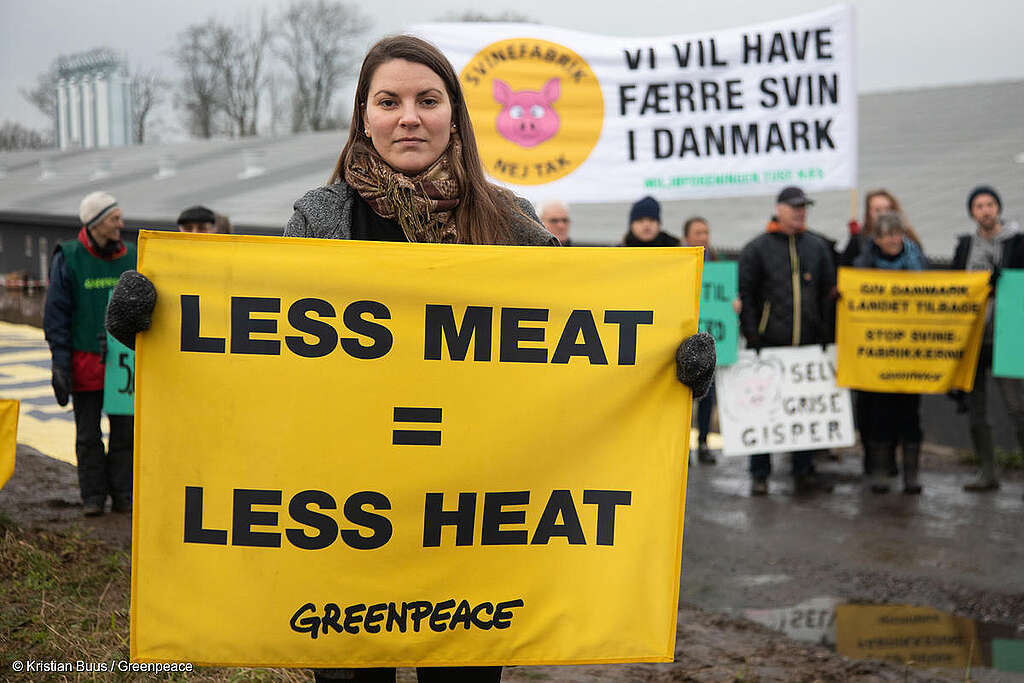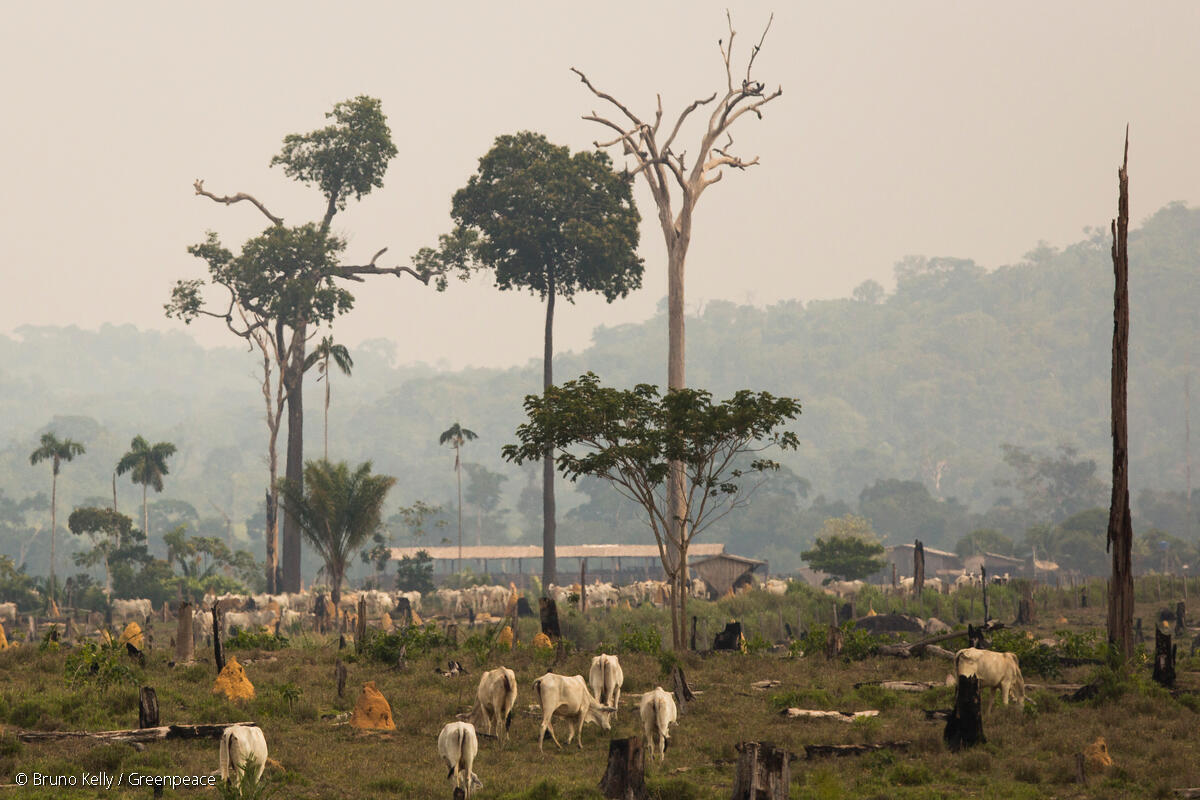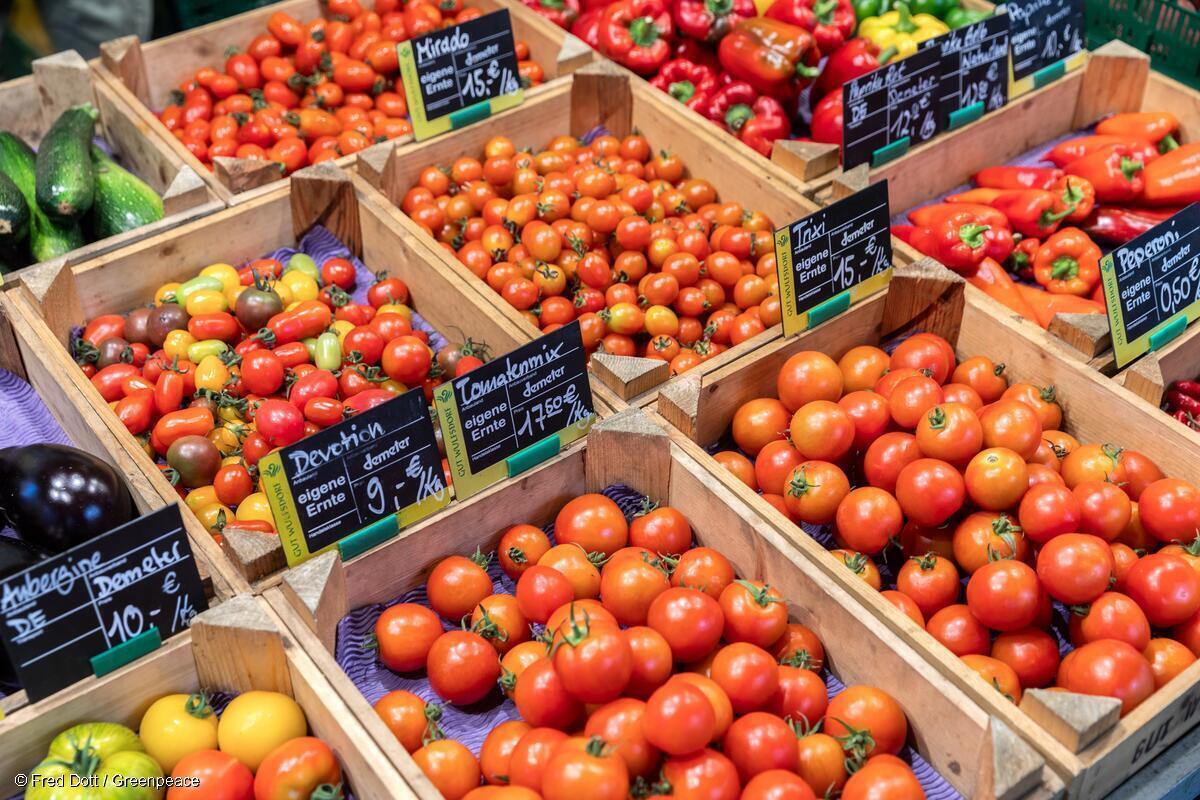Brussels – New European Commission plans for the European agri-food sector, published today, do little to curtail the environmental, climate and socioeconomic threats facing most farmers, and ignore the findings of the Commission’s own advisory group, Greenpeace warned.

After farmers’ protests erupted across Europe in 2024, European Commission President Ursula von der Leyen launched an advisory group on the EU’s food and farming system, gathering farmers’ groups, food companies, retailers, biotech companies, scientists, environmental experts and consumer groups, among others, to help develop a vision for European farming. [1] Greenpeace’s EU agricultural policy director took part in the advisory group, which unanimously agreed that “business as usual, be it economic, social or environmental, is not an option”.
Greenpeace EU agricultural policy director Marco Contiero said: “When we got farmers’ unions, environmental experts, scientists, traders and food companies around the same table, everyone was clear – Europe’s food and farming system must change – but the EU Commission’s ‘vision’ can’t seem to see that. EU farm policy pays massive amounts of public money to a model of farming that eats away at nature, rewards billionaire land-owners, puts small farms out of business and hollows out rural communities. If nothing changes, European farming’s vulnerability to climate and environmental breakdown will grow, further risking farmers’ livelihoods and their very ability to grow food. This is the Commission’s tunnel vision on farming, unwilling to change course even as our food system crumbles.”
Despite the European Commission’s promise to base its agri-food plan on the advisory group’s recommendations, today’s announcement bears little resemblance to them, and fails to address the triple crisis of climate breakdown, nature destruction and environmental pollution, Greenpeace warned.
Greenpeace’s main concerns with the European Commission’s agri-food plan are:
- It ignores the unanimous recommendations of the advisory group to tackle unhealthy and resource-intensive diets, and rebalance the consumption of animal-based proteins (meat, dairy and eggs) with plant-based ones. The Commission only promises to promote initiatives that local authorities could take, such as community-led initiatives and food councils.
- It weakens the advisory group’s proposal to better target the EU’s farm subsidies to “farmers that need it most”, by stressing that support must be “more directed towards farmers that actively contribute to food security, the economic vitality of farms and the preservation of the environment”, thus all farmers.
- It proposes further deregulation of the environmental standards farms must meet to receive EU farm subsidies, following significant deregulation in April 2024, which made many of these rules voluntary.
- Despite recognising that climate action is essential in the agri-food sector, the Commission only commits to “consider pathways” for the contribution of the agricultural sector to the 2040 climate target, instead of outlining plans to cut the sector’s greenhouse gas emissions, starting with reducing the number of farmed animals in areas of high livestock concentration.
- There is no mention of a just transition fund, which would provide investment support to farmers who want to move to more sustainable methods, nor a nature restoration fund, to support farmers who want to restore and manage natural habitats, despite unanimous agreement by the advisory group that both funds were essential.
Notes:
[1] The Strategic Dialogue on the Future of EU Agriculture
Contacts:
Marco Contiero, Greenpeace EU agricultural policy director: +32 477 77 70 34, [email protected]
Greenpeace EU press desk: +32 (0)2 274 1911, [email protected]
For breaking news and comment on EU affairs: Bluesky and WhatsApp
Greenpeace is an independent global campaigning network that acts to change attitudes and behaviour, to protect and conserve the environment and to promote peace. We do not accept donations from governments, the EU, businesses or political parties. Greenpeace has over three million supporters, and 26 independent national and regional organisations with offices in more than 55 countries.
EU Transparency Register: 9832909575-41



